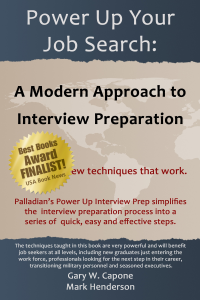 Most resumes look alike, with little to differentiate between them. Job candidates list their past responsibilities and skills. When a company hires a global sourcing professional, all the qualified candidates will have similar backgrounds, having had the same responsibilities and skills. To stand out, a resume should have specific accomplishments demonstrating the past performance of the job candidate. The accomplishments provide the sizzle that can get a hiring manager excited.
Most resumes look alike, with little to differentiate between them. Job candidates list their past responsibilities and skills. When a company hires a global sourcing professional, all the qualified candidates will have similar backgrounds, having had the same responsibilities and skills. To stand out, a resume should have specific accomplishments demonstrating the past performance of the job candidate. The accomplishments provide the sizzle that can get a hiring manager excited.
Below are six accomplishments taken from the resumes of global sourcing professionals. After each example is an assessment of the effectiveness of the accomplishment in selling the candidate’s potential.
Increased profits by an average of 32% after researching and identifying opportunities for volume purchasing with several suppliers, including reviewing fast-moving items and negotiating per-order agreements.
Assessment: This accomplishment is good, but could be better. Increasing profits by 32% sounds like a good accomplishment, but it isn’t specific enough. A little more detail regarding the profit margin, total sales and resulting profits would make the accomplishment clearer. The candidate does a good job of showing how the results were achieved with the description of negotiating volume purchase agreements.
Cut on-hand inventory by 30%, eliminated $50K in costs, and improved cash flow by reducing quantity purchasing and maintaining quantity pricing of packaging materials.
Assessment: This accomplishment provides very specific results. It is weak on details of how the results were achieved. Reducing inventories is easy. What is difficult is reducing inventories while maintaining or improving customer service levels at the same time. This example does not address the competing priority of customer service, or show how inventories were reduced.
15 years consistently maximizing corporate performance, driving growth, generating revenues, capturing market share, improving profits, and enhancing value in domestic and international markets in the sourcing and procurement industry.
Assessment: In isolation, this sounds good. Unfortunately, general statements like this are so common that they are often disregarded by hiring managers. Accomplishments need to be specific and detailed to have the greatest impact. This accomplishment, despite being very boastful, will do little to differentiate the candidate.
Pioneered a vendor management program incorporating proper vendor administration. This program enabled accurate measurement of supplier performance, resulting in sustainable cost savings over life of supplier relationships.
Assessment: This accomplishment is ok. Developing a vendor management program could be a great experience. The problem with the accomplishment is it doesn’t detail the scope of the program and it doesn’t give any direct results. The program may have been tested with one small vendor and discontinued or it could have revamped tens of billions of dollars of purchasing.
Implemented change of steel grade for forgings creating $350,000 savings in steel surcharges.
Assessment: This is a good accomplishment. It shows a specific result. The activity that led to the result is also clear. The element that is missing is the role of the candidate in delivering this result. Did an engineer identify a cheaper material and the buyer just followed the spec? Or, did the buyer identify the opportunity and take it to engineering and operations for approval? The first situation isn’t really an accomplishment, while the second could be very impressive.
Consistently ranked in the top quarter of branch offices in Productivity and Cost Per Load.
Assessment: This accomplishment is not very specific, but is still good. The element that is noteworthy is the ranking. Showing a performance measure relative to similar operations can help demonstrate the quality of the performance.






